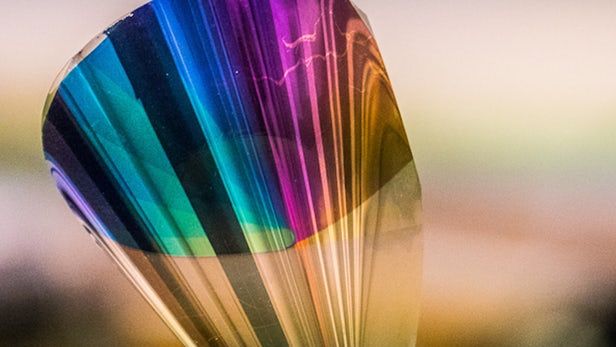E-ink displays may be easier on the eyes and less power-hungry than backlit LCDs used in most tablets and phones, but in the color department they’re still playing catch-up. However, this could change thanks to a new type of material developed at Chalmers University of Technology that is flexible, ultrathin and can produce the full color range of an LED-backlit LCD, but requires ten times less energy than a Kindle’s e-ink display.
Like a conventional e-reader screen, the material functions as a reflective display, so instead of being backlit like an LCD, the surface reflects the external light that hits it. Electrically conductive polymers covering the surface change how that light is absorbed and reflected, which allows it to recreate high resolution images and text. The end result is a material that’s less than one micron thick, flexible and extremely energy efficient.
“The ‘paper’ is similar to the Kindle tablet,” says Andreas Dahlin, lead author of the study. “It isn’t lit up like a standard display, but rather reflects the external light which illuminates it. Therefore it works very well where there is bright light, such as out in the sun, in contrast to standard LED displays that work best in darkness. At the same time it needs only a tenth of the energy that a Kindle tablet uses, which itself uses much less energy than a tablet LED display.”
